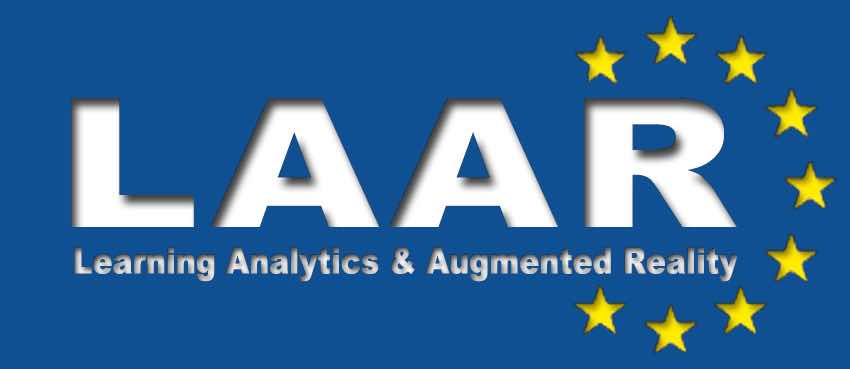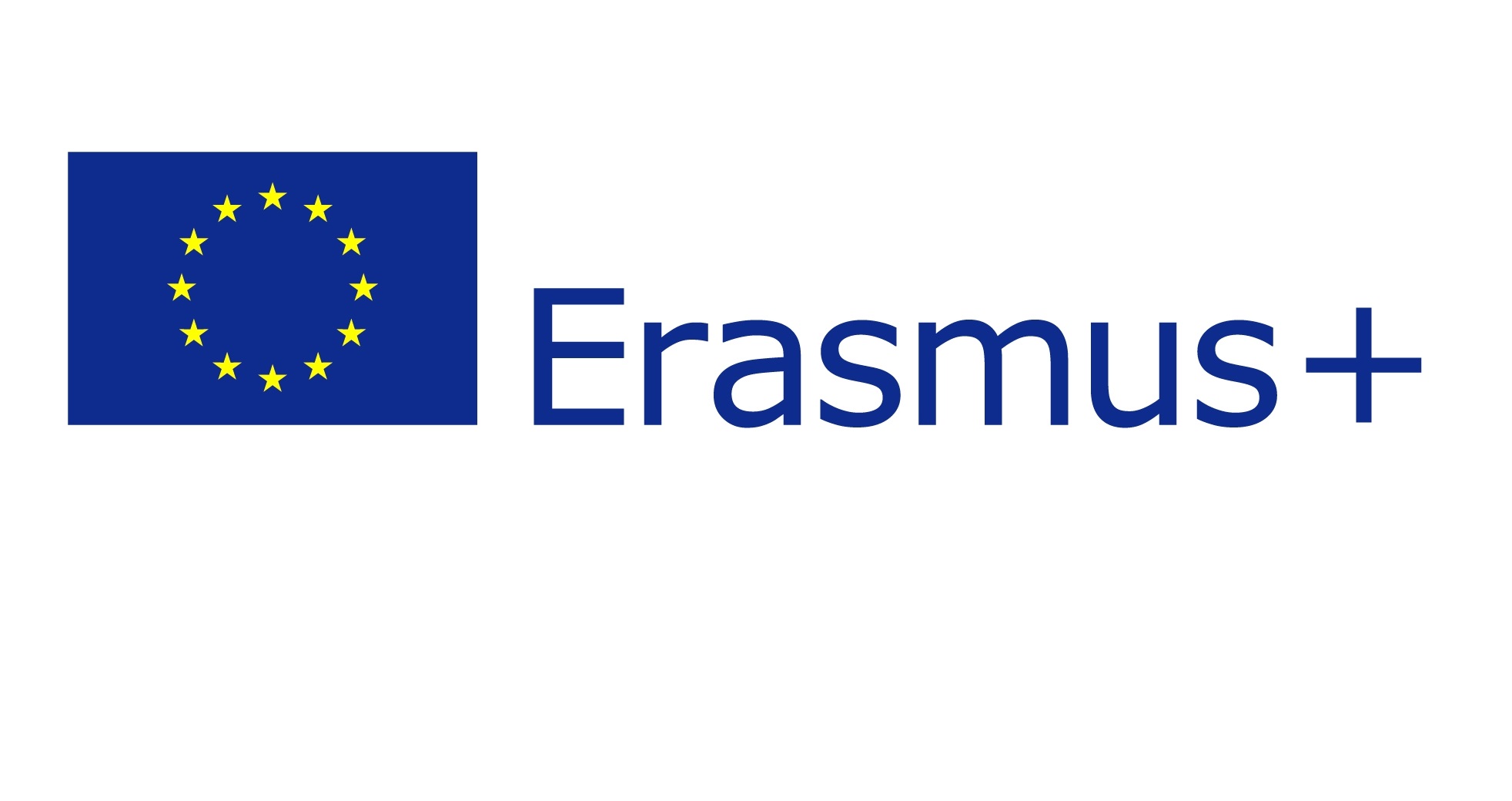|
Update 06/06/2020
link naar projectpagina: https://competenceanalytics.eu/index.php/nl/
Het LAAR project onderzocht de mogelijkheden van het gebruik van Learning Analytics en Augmented Reality voor VET (Professionele opleiding en training) in de sector van de podiumtechnieken. Ondertussen is het project afgerond en kreeg het een (zeer hoge) score van 93% De internationale beoordelaars schreven:
"Overall, the project can be rated as particularly successful. The scientific debate on the future topics of Learning Analytics and Augmented Reality, which led to several publications, is to be acknowledged. Thus, a contribution can be made to pedagogical-didactic development work in this field. On the other hand, applications are available which are presented in an understandable way in the final report. These are undoubtedly relevant and useful in the field of event technology. It has to be acknowledged that the project results are accessible in various relevant networks.
However, the report does show how the results can be directly applied and disseminated further. Although they are freely available, counter-measures for dissemination would have to be taken (if not already done). In accordance with the Erasmus+ funding guidelines, it is important to ensure that information on the project (including references to EU funding) is published on all partner websites.
In addition, potential synergies with other thematic and educational areas should continue to be actively sought and created (also outside of EU funding)."
Kort samengevat ging het onderzoek naar het gebruik van Learning Analytics en Augmented Reality voor VET (Professionele opleiding en training) in de sector van de podiumtechnieken over volgende elementen (wie meer detail wil kan de whitepaper lezen of de projectwebsite bezoeken):
Augmented Reality (AR) heeft het potentieel om efficiënt leren in informele en niet-formele leeromgevingen te ondersteunen. Deze voordelen beperken zich niet tot initiële opleidingen of tot het academisch onderwijs (zie Sommerauer & Müller, 2014), maar versterken ook het professioneel onderwijs (vb. ERASMUS+ Project „EI-integration“). Vooral in de bouwsector of de evenementenbranche zijn veiligheidstrainingen nodig om werknemers op hun werkplek te beschermen. Een centrale vraag hierbij is welke elementen in aanmerking moeten komen (d.w.z. leerelementen, ontwerpelementen, enz.) bij het ontwikkelen van effectieve leertoepassingen. Verder is de vraag hoe dergelijke toepassingen de verantwoordelijken op de werkplek kunnen ondersteunen, zodat ze zeker zijn dat elke medewerker voldoende getraind is, de belangrijkste elementen van de training heeft begrepen en zich kan gedragen volgens de instructies.
Dit is waar Learning Analytics (LA) zijn intrede doet. LA biedt verschillende hulpmiddelen en concepten om leren te ondersteunen, met een focus op de mensen die betrokken zijn bij de leerprocessen (trainer, lerende, evaluator). Het project beoogt een kader te creëren voor het implementeren van elementen in AR-leerapplicaties op basis van LA-inzichten. Dit kader ondersteunt lerenden en trainers in hun leer- en trainingsprocessen en leidt naar een hogere efficiëntie en doeltreffendheid. Elementen uit LA, zoals functies en integratie van analytische elementen, zullen worden geïmplementeerd om twee redenen: om feedback te verkrijgen over het gebruik en het gebruiksgemak van de apps en om meetpunten voor de leerprestaties te voorzien. In verschillende cycli zal een reeks pilottoepassingen ontwikkeld en getest worden binnen specifieke trainingsgebieden, zoals facility management, bouw/constructie en in de evenementensector. Op basis van de resultaten en inzichten worden de belangrijkste vragen beantwoord. Bijvoorbeeld: “Hoe kunnen LA en AR worden gebruikt in professionele trainingstoepassingen om effectievere leerervaringen te creëren voor lerenden, met respect voor hun individuele leerpad en -tempo?” Bijkomend worden inzichten verzameld over de gegevens die nodig zijn voor “big-data-analysemethoden” en hoe deze kunnen worden verwerkt in een kleinschalige werkomgeving, of welke methoden kunnen worden ontwikkeld om kennis te ontlenen aan gevestigde, grote leeromgevingen.
Een concreet, gewenst resultaat zou zijn om aanbevelingen te voorzien over hoe men leermiddelen met behulp van LA en AR transparanter kan maken zodat de leerresultaten helder zijn. Hierdoor kan de werkgever zijn opleidingsverantwoordelijkheid indekken, niet enkel door het registreren van het (passief) deelnemen aan veiligheidsbriefings, maar ook door de zekerheid dat de medewerkers de instructie hebben begrepen en in staat zijn om er adequaat naar te handelen. Binnen een eerste ontwikkeling van een generisch kader zijn de bestaande onderzoeksresultaten en hun belangrijkste vragen opgenomen, zodat het kader als een softwaretoepassing kan ontwikkeld worden. In een tweede stap wordt een functioneel prototype van een AR-leerapplicatie ontwikkeld voor analyse- en evaluatiedoeleinden, dat vervolgens – volgens de ontwerpwetenschappelijke benadering – zal worden toegepast in verschillende cycli van veldexperimenten op werkplekken. Het einddoel van het project is om een volledige training en beoordeling te ondersteunen op basis van AR-leerapplicaties en het gebruik van LA-hulpmiddelen en -maatregelen.
Het consortium van vooraanstaande Europese wetenschappers afkomstig uit de gebieden LA en AR streeft naar een strategisch partnerschap met partners in het professionele onderwijs. In dit partnerschap wordt de conceptualisering van de onderwerpen LA en AR toegepast, met name in informele leeromgevingen en rechtstreeks op de werkplekken. Aangezien een resultaat ook een bijdrage aan de onderzoeksgemeenschap moet omvatten, ontwikkelt het project nieuwe mogelijkheden op de werkplek door middel van LA en AR om een antwoord te bieden op actuele vragen uit het professionele onderwijs.
Project website
Onderzoekers
Timing
- oktober 2017 – september 2019
Partners
Met de steun van:
  __________________________________________________________________________________________________________________________ __________________________________________________________________________________________________________________________
(lees hier de volledige LAAR-projectnota)
Augmented Reality (AR) has the potential to support effective learning in informal and non-formal learning environments and not only in school or higher education (see Sommerauer & Müller, 2014) but also in professional education (i.e. ERASMUS+ Project „EI-integration“). Especially in the Event Industry, trainings for safety and security are needed to protect workers at their workplace. One central issue hereby is, which elements must be taken in consideration (i.e. teaching and learning elements, design elements, etc.) when developing effective learning applications. Moreover, how can such applications support responsible persons at the workplace so that they can ensure, that each employee has been trained in safety & security and has understood the key elements of the training and has the ability to behave according the instructions.
Learning Analytics (LA) provides various tools and concepts to support learning and especially people who are involved in learning processes (trainer, trainee, evaluator). The project aims to create a framework on the basis of LA insights, for implementing elements in AR learning applications which supports learners and trainers in their teaching and learning processes towards a higher efficiency and efficacy. At this point, elements from LA like functions and integration of analytical elements shall be implemented to receive feedback about handling and ease of use from the apps, as well as measures for learning performance. In various iterations, a series of pilot applications shall be developed and tested within the Event Industry and in specific training areas (i.e. Hilversum test as provided ERASMUS+ project “ETTE”). From the results and insights, key questions should be answered like how the data required for "big-data analysis methods" can be processed in a small work environment, or which methods can be developed to derive knowledge from established, large learning environments.
A concrete, desirable result would be to provide recommendations about how the transparency of learning services in the understanding of learning outcomes can be depicted with the aid of LA and AR in order to dismiss the responsibility for employers not only to offer the possibility to participate in safety briefings (consumption) but also to ensure that employees have understood and will behave adequately.
The consortium of leading european scientist coming from the areas LA and AR aims to establish a strategical partnership in which the conceptionalisation of the topics LA and AR should be used to apply in the field of professional education, especially in informal learning environments and directly at the workplaces. Since one result should cover also a contribution to the research community, the project aims to develop new opportunities at workplaces and also for LA and AR to provide an added value and give answer to current questions from professional education. Scientific key issues in this context are i.e. how big data analytics can be applied in areas where less data is avaliable, or which parameters contribute to raise efficiency and efficacy of AR learning applications
The consortium exists of the partnerorganisations GPOCS (Koordination in LI), IT University Copenhagen (DK), Oxford Brookes University (GB), WAAG society (NL) and STEPP (BE) aims to establish a strategic partnership in which the indicated topics and aspects should be elaborated. Within a first analysis, existing research results and their leading questions need to be reviewed. In a second step, a first functional prototyp of AR learning application should be developed for analysis and evaluation purposes, which then will be - according the design science approach - applied in various iterations within field experiments at workplaces. Finally, the goal of the project is to support a full session training (i.e. Hilversum test, project ETTE) on the basis of AR learning applications and the use of LA tools and measures.
|
